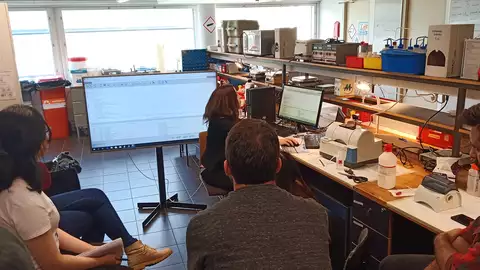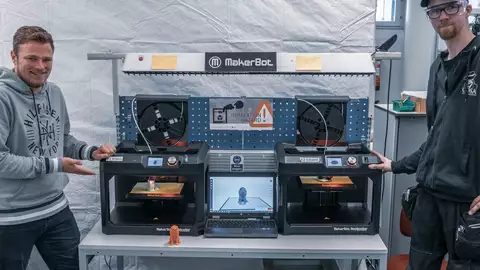




Are you curious about sustainable product development? Would you like to learn how to design, analyse and develop smart and sustainable products by selecting the right engineering materials? Do you look forward to using theoretical knowledge in design, analyses and testing? If so, you are in the right track of your career goal joining our degree programme in Materials Processing Technology.
- Qualification awarded: Bachelor of Engineering, equivalent to Yrkeshögskoleexamen i teknik, Ingenjör (YH)
- Level of qualification: 1st cycle
- Scope: 240 ECTS credits
- Duration: 4 years
- Mode of study: full-time
- Language of tuition: English
Your Studies
Your studies will include modern material technology and processing as well as sustainable product design and development. You will learn how to develop new products and the functional materials involved. As a student in the Materials Processing Technology Programme, you will gain knowledge on modern and sustainable materials as well as their properties. With the knowledge on materials, you will be able to efficiently select appropriate material in engineering design. Several courses on mechanical design and analyses are taught which benefit you on using various modelling, finite element analysis (FEA) and simulation software.
Studying the Materials Processing Technology programme not only builds your theoretical skill set but also brings you into action where you practically involve in product development processes. Your design ideas will be prototyped and manufactured on our state-of-the-art 3D printers and numerically controlled injection moulding machine, optimized for polymer based materials.
Research and Cooperation
We focus the applied research on functional materials considering the needs of the community and the business world. Within the programme, researches are focused on sustainable materials, product development and engineering analyses. Therefore, in addition to your academics, you may get a chance to participate in these research areas.
At Arcada University of Applied Sciences we believe in, and actively pursue, close co-operation with organizations, companies as well as the public sector. Taking part in academic networks, exchanging knowledge with over 90 universities from all corners of the world, a comprehensive network of contacts within various industries and intensive research projects all work together to guarantee that our expertise is extensive and up to date. You have a vast opportunity of utilizing the research and institutional networks to develop your competence through work placements and traineeships to become a competitive professional upon leaving Arcada.
Career opportunities
As a graduate you qualify for a position as an engineer or supervisor at an industrial company. Material and engineering specialists are needed in practically every business field, from manufacturing industry to their supply chains, as well as in the public sector.
Some typical job titles include Process Engineer, Product Engineer, Design Engineer, Laboratory Engineer, Materials Engineer or Sales Engineer.
Postgraduate studies
Students who have completed a bachelor’s degree at a university of applied sciences and acquired at least three years’ experience in working life can deepen their professional competence by completing a master’s degree at the university of applied sciences. The master’s degree programmes consist of 60 or 90 credits and can often be completed while working. Starting from 2016 Arcada will offer a Master’s degree programme in Real Estate Energy for Bachelors of Engineering.
After a bachelor’s degree completed at a university of applied sciences, students can apply to a master’s degree programme at a university. The second-cycle university degree usually consists of 120 credits (2 years of full-time study). The admission decisions are made by the receiving higher education institution.
A person who has graduated with a master's degree has access to third-cycle university programmes (licentiate and doctoral degrees) at universities. The university assesses individually for each case whether the applicant has sufficient knowledge and skills for university postgraduate education.
The professional competence can also be developed by attending specialization studies that do not lead to a degree. Specialisation studies are arranged in a flexible way and are therefore suitable for persons in working life.